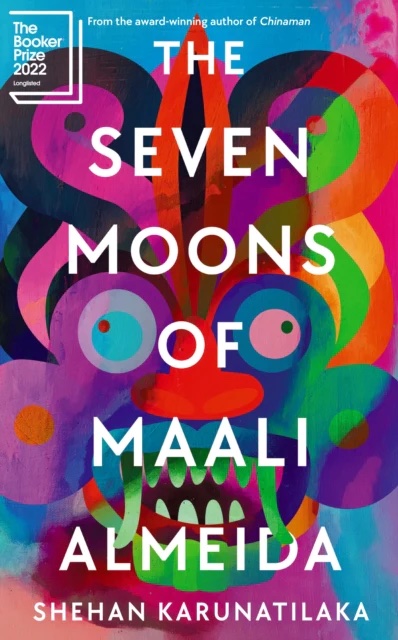‘The Seven Moons of Maali Almeida’ has a place on the decolonised bookshelf
I’ve been reading ‘The Seven Moons of Maali Almeida’ for the past couple of weeks, not as fast as I would normally despatch a book. That’s no reflection on the quality of Shehan Karunatilaka’s writing; I’ve been slowed down only by such challenges of life as a paralysed dog who needed spinal surgery.
So when ‘The Seven Moons…’ won the Booker prize for fiction late on Monday, October 17 night, I felt as if the judges were speaking for me. I too could recognise the “ambition of its scope, and the hilarious audacity of its narrative techniques”.
I could also discern the imprint of George Saunders’ ‘Lincoln in the Bardo’ in the ghosts who hang around Sri Lanka, trying to reconcile the pleasures and pains of their past lives with the dead present and non-existent future. In fact, Mr Karunatilaka pays tribute to Mr Saunders, who he places on a list of people to whom he feels a debt of gratitude.
What’s interesting to me in the way Mr Karunatilaka wrote the novel is its lack of inhibition. The dead photographer constantly goes on about his life as a gay man. He talks about places in Sri Lanka (and parts of Colombo) in the self-assured way English characters in books by English writers once wandered about London or a remote Cotswolds village, doing whatever they did with panache, little explanation and no apology.
The story itself is self-assured, in the sense that it is about Sri Lanka of the here and now, or at least the here and then because the photographer wakes up dead in 1990 and has just seven moons to lead the people he loves most to a hidden cache of photos of civil war atrocities.
Most striking of all is the reality that this novel has a place on the decolonised bookshelf. It doesn’t reference Sri Lanka’s former ruler, Britain, particularly, and certainly not in an imitative way. Even after Mr Karunatilaka won the Booker, he spoke to the people of Sri Lanka in Tamil and Sinhalese as he received it, and then summarised what he said in English: “I write these books for you… Let’s keep sharing these stories.” He added that he hoped, one day the political situation in Sri Lanka will be such that his novel will “sit on the fantasy shelves of bookshops”.
It’s all very different from what has gone before. Years ago, I interviewed the late A Sivanandan, a Sri Lankan Tamil British man, who was director of the Institute of Race Relations for 40 years and the editor of its journal, ‘Race & Class’.
Siva, as everyone called him, had written a remarkable novel ‘When Memory Dies’, which went on to win the Commonwealth Writers’ first book prize (for Eurasia). It was about Sri Lanka’s pain and it was, for all that Siva was fierce about equality, somehow in hock to Sri Lanka’s past relationship with Britain.
Mr Karunatilaka has no such inhibitions.
Also read: My piece in openDemocracy on literature and decolonisation


